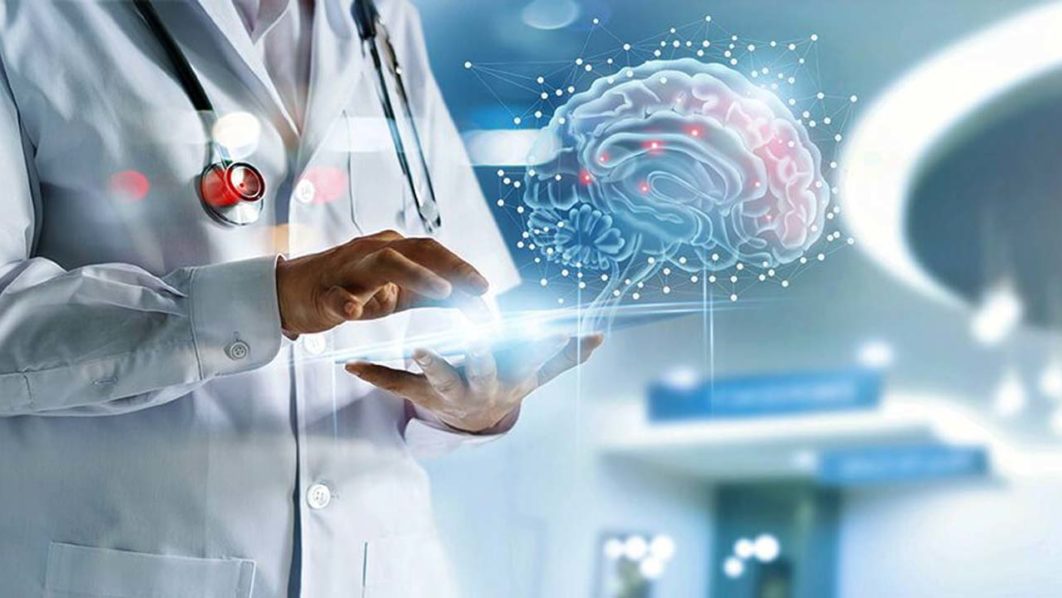
Generative AI, specifically Generative Pre-trained Transformer (GPT) models, have become influential in healthcare, offering groundbreaking applications in clinical decision support, patient communication, and data management. These models demonstrate tremendous potential in transforming healthcare practices by processing and interpreting complex medical information (1). However, it is crucial to acknowledge the challenges and ethical considerations in deploying these technologies, ensuring a balanced and comprehensive view of their impact in the medical field.
Diagnostic Enhancements through Generative AI
Generative AI’s impact on diagnostics is marked by its potential to significantly reduce errors and improve outcomes. GPT models aid disease diagnosis and prognosis, facilitating earlier detection and personalized treatment strategies (2).
Figure 1: 2024 Forecast of Cost Savings in Diagnostics Due to AI Implementation
This figure illustrates the projected increase in cost savings in diagnostics due to AI implementation from 2020 to 2024. By 2024, cost savings are predicted to reach up to 30%, indicating a significant impact of AI on reducing overall expenses in diagnostic processes.
Further, analysts predict a 20% increase in early disease detection rates by 2025, primarily attributed to AI-driven diagnostics. As such, early detection is crucial in treating many diseases, and AI’s role in facilitating this cannot be overstated.
AI-Driven Personalized Treatment Plans
Investments in AI-driven personalized medicine have shown a record high, with the potential to revolutionize drug discovery processes. GPT models predict potential drug candidates, accelerating the development of novel therapies (3).
Figure 2: Trends in Investment in AI-Driven Personalized Medicine (2018-2023)
This figure shows the increasing investment in AI-driven personalized medicine from 2018 to 2023. The investments have steadily risen, reaching an estimated 5.5 billion USD in 2023, reflecting the growing confidence in the potential of AI in healthcare.
Predictive studies in 2024 indicate a 15% improvement in treatment outcomes for chronic conditions like diabetes and heart disease, thanks to AI-enabled personalization. This improvement underscores the potential of AI in crafting more effective and patient-specific treatment strategies.
Addressing Challenges and Ethical Concerns
Integrating Generative AI in healthcare comes with challenges and ethical considerations, particularly regarding the accuracy and reliability of AI-driven decisions. The “black box” nature of some AI models raises questions about the interpretability of decisions, necessitating greater transparency in AI systems (4). These concerns underscore the need for a multifaceted approach to AI implementation, balancing technological advancements with ethical responsibility and patient safety.
Table 1: Challenges and Ethical Considerations in AI-Driven Personalized Medicine (2023-2024)
| Year | Major Challenge | Key Ethical Consideration |
| 2023 | Data Privacy Concerns | Consent for Data Usage |
| 2024 | Compliance with New Regulatory Standards | Algorithm Transparency |
In 2024, new regulatory standards focusing on patient data protection and algorithm transparency are being introduced, highlighting the importance of ethical considerations in deploying AI technologies in healthcare.
Current Efforts and Applications in Healthcare
- Clinical Administration Support
Generative AI models, such as ChatGPT, are used to automate clinical documentation, enhancing the efficiency of healthcare professionals (5).
- Clinical Decision Support
GPT models support clinical decision-making. Tools like Glass AI offer diagnostic assistance and treatment plans, while Regard, integrated with EHR systems, suggests diagnoses and writes clinical notes (5).
- Patient Engagement
Generative AI models prioritize empathy, care, and compassion in patient engagement. Hippocratic AI and Gridspace enhance patient interaction, improving healthcare access and outcomes (5).
- Synthetic Data Generation
Syntegra Medical Mind produces synthetic patient records from accurate healthcare data, aiding in understanding diverse disease patterns and promoting equitable treatment plans (5).
- Professional Education
Generative AI applications in medical education include “digital twins” for simulating disease progression under different therapies, aiding in personalized treatment plans and clinical research (5).
The Future of AI in Healthcare
Indeed, Generative AI is poised to revolutionize medicine, with an increasing role as it further evolves and attains better tailoring to medical domain requirements (1). As we embrace this future, it is paramount to navigate the challenges and ethical dilemmas presented by AI integration, ensuring a healthcare system that is not only technologically advanced but also ethically sound and patient-centric. Collaboration between healthcare professionals, AI developers, and policymakers will be vital in harnessing AI’s power for a technologically advanced, patient-centric healthcare system.
Key factors in this evolution include:
- Ethical and Safe Implementation: Ethical considerations, particularly regarding data privacy and patient rights, need thorough addressing (4).
- Bridging the Knowledge Gap: Combining healthcare professionals’ expertise with AI developers’ technical knowledge is crucial for developing clinically relevant AI tools (5).
- Adapting Healthcare Policies: Policies governing AI use in healthcare must evolve alongside technological advancements (1).
- Customization and Personalization: AI offers the potential for highly personalized medical care, improving treatment efficacy and patient outcomes (3).
- Education and Training: Educating healthcare professionals about AI capabilities and limitations is vital for effective use in clinical settings (5).
- Public Trust and Transparency: Building public trust in AI-driven healthcare systems through transparent communication is essential (1).
- Innovation and Research: AI can significantly accelerate medical research, leading to new treatment discoveries and a deeper understanding of medical conditions (3).
Collaboration between healthcare professionals, AI developers, and policymakers will be key to harnessing AI’s power for a technologically advanced, patient-centric healthcare system.
References
- “Generative AI in Medicine and Healthcare: Promises, Opportunities and Challenges,” Future Internet, 2023.
- “The Role of AI in Healthcare: Transforming Diagnosis and Treatment,” Journal of Medical Technology, 2023.
- “Advancements in AI-Driven Personalized Medicine,” Economic Review of Medical Innovations, 2023.
- “Challenges in Integrating AI into Healthcare: Ethical and Practical Considerations,” Healthcare Consumer Insights, 2023.
- “Revolutionizing Medical Education with AI,” JMIR Medical Education, 2023.






